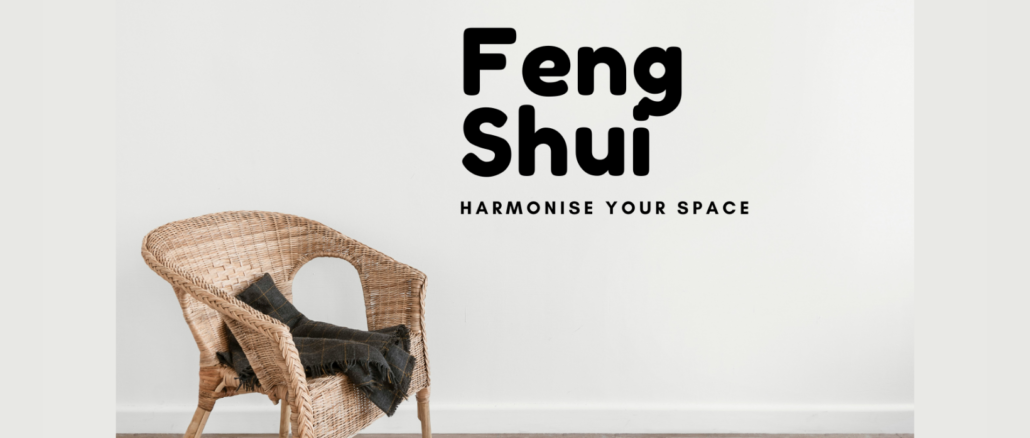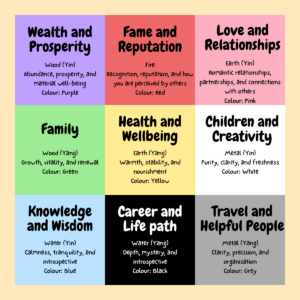
Feng Shui, an ancient Chinese practice dating back over 3,000 years, is more than just arranging furniture or decorating spaces—it’s a philosophy deeply rooted in the idea of creating harmony and balance in our environments. Translated as “wind” (Feng) and “water” (Shui), Feng Shui encompasses a range of principles and techniques aimed at optimising the flow of energy, or “Chi,” within a space. In this article, we’ll delve into the essence of Feng Shui, exploring its principles, benefits, and practical applications in modern life.
At the core of Feng Shui are the principles of Yin and Yang, representing the balance between opposing forces such as light and dark, hot, and cold, and masculine and feminine energies. These principles guide the arrangement of elements within a space to promote equilibrium and positive energy flow. Additionally, the Bagua, an octagonal map, is used to identify different areas of life (such as wealth, health, relationships, and career) and their corresponding elements, colours, and shapes. By aligning these elements harmoniously, Feng Shui aims to enhance various aspects of life.
 Applying Feng Shui in the home involves assessing the layout, furniture placement, and overall design to optimise the flow of energy. Simple practices like decluttering, maximising natural light, and incorporating elements of nature (such as plants and water features) can promote a sense of tranquillity and well-being. Additionally, mindful placement of mirrors, artwork, and colours can stimulate positive energy and support specific life areas according to the Bagua map.
Applying Feng Shui in the home involves assessing the layout, furniture placement, and overall design to optimise the flow of energy. Simple practices like decluttering, maximising natural light, and incorporating elements of nature (such as plants and water features) can promote a sense of tranquillity and well-being. Additionally, mindful placement of mirrors, artwork, and colours can stimulate positive energy and support specific life areas according to the Bagua map.
In the realm of work and productivity, Feng Shui principles can be applied to create an environment conducive to focus, creativity, and success. Ensuring a clutter-free and organised workspace, positioning the desk to face the door for command and control, and incorporating elements of inspiration and motivation can foster productivity and prosperity.
Feng Shui extends beyond physical spaces to influence interpersonal relationships and personal well-being. By harmonising the energy flow in areas associated with relationships, such as the bedroom and living room, couples can cultivate intimacy and connection. Meanwhile, implementing Feng Shui practices in areas linked to health and well-being can promote vitality, relaxation, and overall balance.
While rooted in ancient Chinese philosophy, Feng Shui has evolved to accommodate modern lifestyles and cultural variations. Its principles have been integrated into architecture, interior design, landscaping, and even urban planning worldwide. Moreover, Feng Shui consultations and practices have gained popularity in diverse cultures, reflecting a universal desire for harmony, prosperity, and holistic well-being.
Feng Shui offers a profound understanding of how our environments influence our lives, emphasising the interconnectedness of physical spaces, energy flow, and personal experiences. Whether applied to homes, workplaces, or personal relationships, its principles empower individuals to create spaces that support their goals, nurture their well-being, and cultivate harmony in every aspect of life. As we embrace the wisdom of Feng Shui, we embark on a journey toward greater balance, vitality, and fulfilment.
SheSociety is a site for the women of Australia to share our stories, our experiences, shared learnings and opportunities to connect.

Leave a Reply